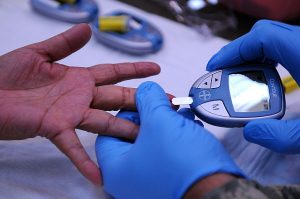Nursing is one of the few careers that offer excellent pay along with great rewards and a sense of purpose. As a nurse, every day you are working is a day spent making a positive impact in peoples lives. You become a key player in people’s health journey. One of the greatest aspects of a nursing degree is the opportunity for career advancement. The field offers a variety of pathways and opportunities for specialization.

Earning a masters degree in nursing (MSN) is a great way to take your career to the next level while increasing your scope of practice and responsibilities. A graduate degree in nursing will open the door to better positions and higher salaries. Additionally, an MSN will allow you to make an even larger impact in the lives of your patients. Pursuing an advanced degree at Grand Canyon University Nursing or another four-year college is a great way to accelerate your career.
MSN vs. RN
Within the field of nursing, there are a variety of entry-level pathways. Becoming a registered nurse (RN) is the most popular pathway to becoming a nurse due to the minimal education requirements. RNs obtain a nursing diploma through a certificate program or complete an associate’s degree- both pathways can typically be completed in under two years. An RN’s scope of practice is general care- they do a little of everything.
Earning an MSN allows you to focus on the concentration within nursing that most interests you. A nurse that has completed a graduate program has knowledge within a specific area of nursing and assumes a position within that field. Within the broad field of nursing, there are over 90 specializations that nurses can choose from. Additionally, a masters degree in nursing allows graduates a broader array of career paths. Besides providing medical care, nurses with a graduate degree can be nurse educators or hold jobs in health administration. The Grand Canyon University nursing school and other colleges provide great programs for gaining an advanced degree.
Obtaining an MSN: Process and Prerequisites
Normally, an MSN program will take two years to complete. Most MSN programs require a certain amount of work experience before you are eligible for admittance. Additionally, there are some education requirements needed before application. Some of the prerequisites for a master’s program include:
- A bachelor of science in nursing (BSN). Most advanced programs want students that have completed a BSN over those that have gone through associates programs.
- Clinical or work experience. If you have hands-on experience or work experience it will put you ahead of the other applicants.
- An RN license.
- G.P.A. and standardized testing scores. Each school will have its own specific G.P.A. and standardized testing score requirements.
The first year of an MSN program is primarily spent in the classroom; students take a variety of general MSN courses. In your first year of the program, you can expect to take a variety of courses some of which include health care policy, advanced biochemistry, and nursing administration. Your curriculum will also be tailored to your specialization and include associated coursework. The second year of an MSN is usually more hands-on and involves a practicum
Choosing a career in nursing means pursuing a meaningful and fulfilling profession. Nursing is a broad field, and there are a variety of pathways prospective nurses can choose from. One of the best ways to hone in on what you love, have greater responsibilities and make a larger impact is to pursue an advanced degree. Nurses with an MSN are the first choice for many employers and enjoy a more specialized scope of practice. Gaining a graduate degree in nursing is a great way to focus in on the specific area of medicine you would like to practice.



Leave a Reply